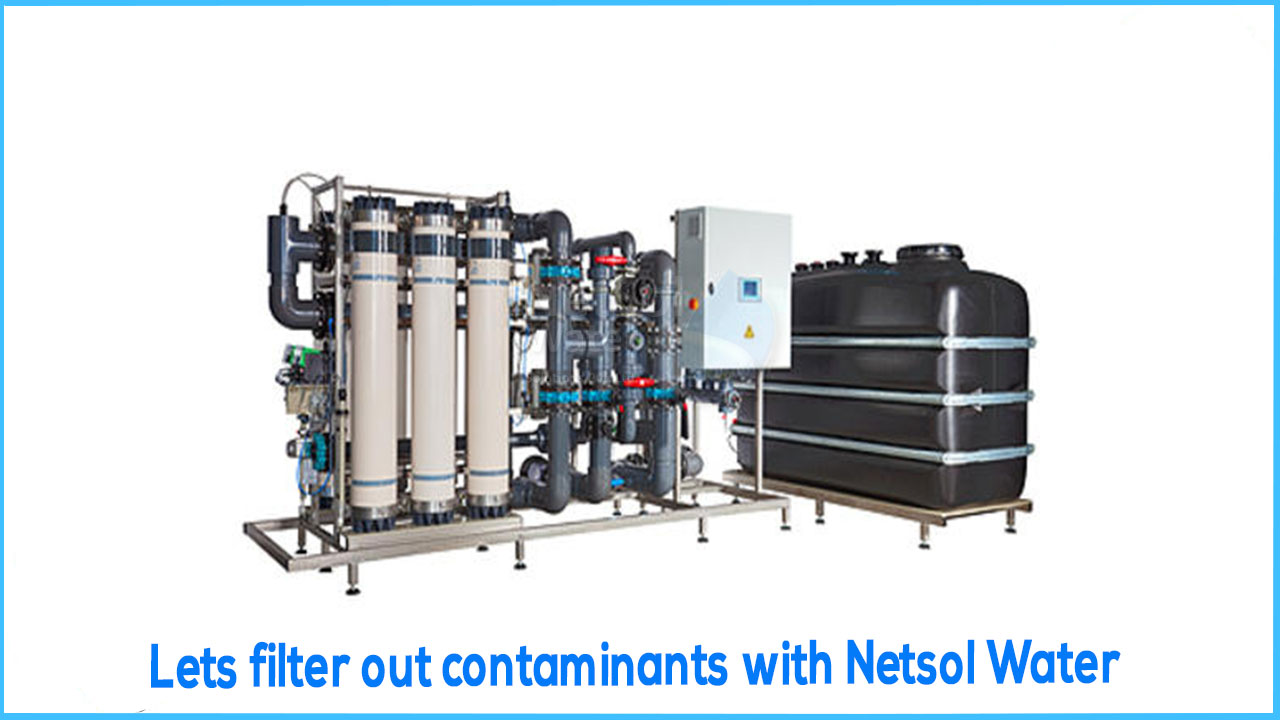THE PROCESS OF REVERSE OSMOSIS AND ITS BENEFITS
Reverse osmosis pre-treats water to remove carbon, chlorine, and other sediments before passing it through a semipermeable membrane for deionisation. Pre-filtration keeps the RO membrane from being harmed or clogged by hard deposits in the water. A rotameter is used in a commercial RO plant system to check the flow of liquids, a voltmeter is used to measure the potential difference, and a dosing pump is used to apply pressure to the water.
In a cross-flow technique, high pressure is used to pump feedwater into the input side of the semipermeable RO membrane. It removes 95 to 99% of ionic and organic impurities. It also eliminates all bacteria, arsenic impurities, and lead particles. Its advanced technology makes it ideal for extensive industrial water treatment.
HOW IS REVERSE OSMOSIS USED IN INDUSTRIAL PROCESS?
The NETSOL Reverse Osmosis system is a cutting-edge wastewater treatment technique. Membranes with a cutting-edge spiral design remove contaminants from water without the use of chemicals, resins, or ion exchange beds.Manufacturing wastewater may contain hazardous substances. Metals, oils, grease, and toxic compounds such as paint residue can all be found in wastewater generated during the production of a car. If this effluent is not properly treated before entering the water cycle, it may have a long-term negative impact on the ecology.NETSOL Reverse Osmosis removes some impurities from water, allowing it to be reused in industrial processes or drained without negatively impacting the environment.
Water pollution is also harmful to animals because it kills fish, which has an impact on the food pyramid as a whole. Because the industrial sector produces a significant amount of hazardous wastewater that re-enters the water cycle, it is their corporate ethical responsibility to prevent it. To capitalize on society's growing eco-consciousness, businesses are developing green advertising and changing the way they manufacture products.
Poor water treatment management can result in hefty fines and harsh punishments, including the imprisonment of a company's managing director, if the rules are not followed.RO systems are completely self-contained, self-cleaning, and self-maintaining systems. They are powered by electricity and only need to be checked once a day by onsite employees.
TYPES OF COMMERCIAL RO PLANTS
- LPH COMMERCIAL RO SYSTEM: It serves as a guardian angel for industries that produce water-related products. It is also essential in the water treatment industry. It performs well in separating sodium and sediments from brackish water.
- INDUSTRIAL RO SYSTEM: Because of its advanced technology and ease of maintenance, it is the most popular method of filtration. It removes nearly 98% of impurities while retaining the basic properties of water.
- COMPACT COMMERCIAL RO SYSTEM: It serves the needs of both industries and households. It has a smooth operating mechanism, manageability, and installation process.
CONCLUSION
NETSOL RO Plant Suppliers strive to use the most advanced technologies and equipment’s to treat industrial waters. The RO system effectively removes all salts and impurities from wastewater. We specialise in providing the best and most advanced RO plants to industries to suit their testing needs.




